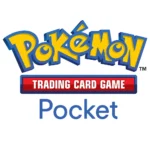On June 20, MSCI announced the results of its “2024 Annual Market Classification,” revealing that South Korea will remain classified as an Emerging Market (EM). This decision comes despite recent efforts by South Korean financial authorities to improve market accessibility and align with developed market standards.
Earlier this month, on June 6, MSCI downgraded South Korea’s short selling accessibility from ‘plus (+)’ to ‘minus (-)’ in its “Annual Market Accessibility Review” report. The primary reason for South Korea’s exclusion from the MSCI Developed Markets Index is the restricted market accessibility due to the short selling ban implemented in November last year.
“We continue to monitor the implementation of measures to improve the accessibility of the Korean stock market for foreign investors, while noting that market accessibility is limited due to the recent short selling ban,” MSCI stated. The organization acknowledged and welcomed “the recently proposed measures to improve the accessibility of the Korean stock market,” but pointed out that sudden changes in market rules are undesirable.
In response, financial authorities emphasized that inclusion in the MSCI Developed Markets Index is not a policy goal. Kim So-young, Vice Chairman of the Financial Services Commission, stated, “It may be possible as we pursue the advancement of the capital market.” The financial authorities plan to continue various policy efforts, such as liberalizing the foreign exchange market, providing English disclosures, and improving dividend procedures to achieve developed market status.
The industry reaction to this outcome was largely expected. There has been dissatisfaction with the short selling ban, and calls for its swift resumption and the expansion of capital market openness. A senior official in the securities industry commented, “The short selling ban, contrary to policies such as the opening of the foreign exchange market and the abolition of the foreign investor registration system, has led MSCI to question the consistency of the South Korean government’s policies.”
Following the announcement of the resumption of short selling, foreign investors have been unwinding their positions to reduce exposure to Korean assets, likely shifting investments to markets such as Taiwan, Hong Kong, and Singapore. “It will take a significant amount of time to recover this lost ground,” the official added.
South Korea’s strategic initiatives to improve market accessibility are ongoing, and financial authorities remain committed to advancing the capital market to eventually meet the criteria for developed market classification.




